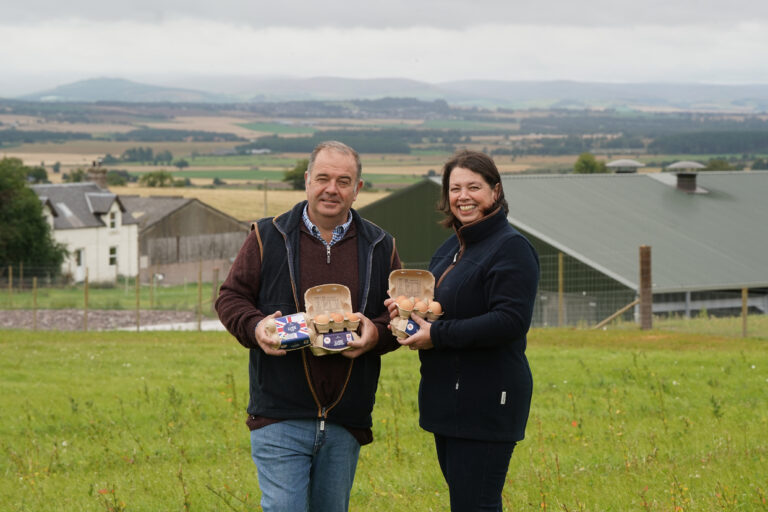Lidl GB is offering farmers financial incentives to move into egg farming, in an attempt to increase the supply of British eggs.
Existing and new farmers are being offered an additional investment on top of market rates, in addition to long term contracts. Lidl said the arrangement would give producers “the security and confidence needed to invest in and expand their existing businesses, helping to provide greater returns in the long term.”
Following discussions with packer Farmlay Eggs, cattle breeders Bob and Kay Adam, recently started working with Lidl. They chose to diversify their business and invest in a 32,000 bird Free Range egg laying unit as part of a five-year contract linked to a cost of production model. The first eggs from their unit will be in Lidl stores within the next two weeks.
Martin Kottbauer, chief trading officer at Lidl GB said: “The last year has been particularly challenging for the British egg industry, and it’s had an impact on everyone. The easy option would certainly have been for us to source elsewhere, but we are firmly committed to the long-standing relationships we have with our British suppliers, and our commitment to sourcing 100% fresh shell British eggs.
“As an industry we need to be doing more to ensure the long-term sustainability of the British egg sector, which is why we have taken steps to offer incentives and security for farmers to expand into egg production. This approach, which is supported by long term contracts, is giving our suppliers much needed confidence to invest in their businesses and further secure their futures. We would urge other retailers to do the same.”
Lidl said it was also supporting existing suppliers and is set to invest an additional £40m compared to last year.
Robert Chapman, of Farmlay Eggs said: “Farmlay and its 25 contract producers are very grateful to Lidl for its support during a very challenging time with Avian Influenza a constant threat. The security that Lidl has given us with long term contracts and a cost of production model ensures a good return, back to the primary producer.”


